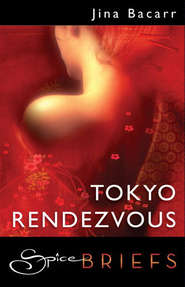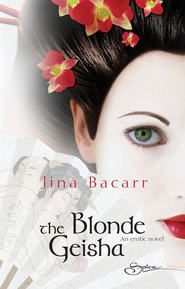По всем вопросам обращайтесь на: info@litportal.ru
(©) 2003-2024.
✖
Spies, Lies & Naked Thighs
Автор
Год написания книги
2019
Настройки чтения
Размер шрифта
Высота строк
Поля
You have to see how the bones come out of the ground, I always say, to hear their stories. I whisper back to them before removing the bones from their final resting place, assure them I mean them no harm, then listen to their precious answers before I make my conclusions.
In my work, I’ve danced on wildf lower carpets throughout the Middle East, from preserved Roman cities with paved and colonnaded streets, plazas and amphitheaters to the vast desert with its burnt red moonscape valleys and towering sandstone mountains and cliffs. Hot desert winds at my back are my companions. Cold, damp crypts are my workplace.
I live to find the dead and tell their stories. Not easy to do when my grant money is about to run out. I’m a student in search of a Ph.D., following every lead that comes my way to complete my doctoral dissertation on the role of women in premodern Syria. I’ve spent my entire career trying to convince the academic world that archaeology is an important sexual science, that women played a major part in ancient civilizations, participating in sacred rituals, meeting secretly to explore pleasure, whether it was with male members of the tribe or with sex tools. Consequently, I often experience anxious moments at airport security when I forget I’ve stuffed broken bones or a stone phallic symbol from the Ice Age in my carry-on bag.
I’ve been kicking around the Near East for more than a year, working on various digs, but it’s rare to make any major discovery in the field these days. Archaeology is menial work, sifting dirt oozing with invading termites or scratching at hard rock, breaking off my nails, scrutinizing each bagful of potsherds, but rewarding for me when I see a small piece of bone, a faded remnant of cloth, a broken glass earring. Then I hear the whispers. This time they led me here to a forgotten vault in the middle of the desert.
It all started two weeks ago with a walk through the souk in Aleppo in northern Syria. I’d hoped to join a dig in Jableh but that fell through, so I decided to see the centuries-old bazaar before trying my luck in Damascus. No sooner had I found my way to the souk than a pleasant young man approached me, introduced himself as Ahmed and offered in broken English to act as my tour guide. Dubious at first, I shook my head no, but he followed me until I gave in, insisting he had excellent-quality copies of a popular guidebook special today to lady tourists. His boundless enthusiasm and toothy smile won over my incertitude. I couldn’t help but like the slight young man wearing baggy brown trousers and a dark gray shirt two sizes too big for him, wiping the sweat off his face with his twin russet-colored scarves twisted around his neck. He chatted with ease about the abundance of food overf lowing from each stall and his stomach being not big enough to hold it all.
If I’d been more observant, I’d have seen someone else also watching me. A man dressed in a camel’s-hair robe as white as the hot sands, his muscular body brown and hard, his raw masculinity so seductive his spirit would pervade my hunger for him until he became an obsession.
The game was on.
Two weeks earlier
I need a dig. Need it badly.
Sipping a mint-and-lime juice in the hot summer heat, I cruise down the long, dark alleys of the bazaar in Aleppo, Syria, the intense scent of spices seducing me, the curious crowds of people watching me, not knowing where the next turn will take me, Ahmed warning me not to pick up anything I don’t intend to buy since stallkeepers take that as a sale, when I hear the voices.
Not loud. Faint, subtle sounds in my head, telling me something stirs in the old stones under my feet, the shops with the faded wooden doors closing in on either side of me, the hidden corners where I hear but don’t see an old man chanting and keeping time with a small drum, unnerving me. The souk is filled with shops selling vibrant textiles, sweet dates, aromatic coffee beans and natural olive oil soaps. Not ancient bones, I tell myself, but it’s a feeling I can’t shake. Perhaps it’s the vibrant red-and-black scarves that Bedouin women wear hanging in the shop window and calling out to me. The floral motif and gold thread woven down the edge of the silk please my feminine instincts, a part of me that hasn’t been nurtured with a soft caress upon my skin since I left home.
Since then, I’ve slept on makeshift cots, watched the dawn break over the desert sky with its rosy hue; sweltered in the blazing noon heat on a dig while keeping my guard up for poisonous caterpillars; and spent days putting together the shards of the pelvic bone of a young woman, only to discover she’d never known the joy of holding a baby in her arms. At the end of the day, I’ve sat in the ruins under moonlight and listened to the bucolic sounds of a local digger playing the flute, its mesmerizing melody climbing up to the heavens and bringing me closer to the stars with each note.
I’ve also kicked off my boots and played with Bedouin children in the sand, delighting in the desert as a playground with all its colors and lights. The contrast between the orange glow hitting a blue-and-white-striped nomad tent in an oasis against the golden, hot sand is a sublime experience that awakens all my senses. Like now.
The air is hot and the shop somehow seductive.
Located on a tiny cobblestoned street crisscrossing under a domed alley, I ignore the stench of the slaughtered animals hanging in the doorway and wander inside the shop crammed with antiques. Ahmed runs after me, his backless running shoes making a scruffy sound on the cobbles.
“This shop no good,” he insists, holding his russet-colored neck scarf to his nose. “Cheat tourists.”
“Something I’m sure you’d never do, right, Ahmed?” I smile and indicate the photocopied popular travel guide he sold me since importing the real deal is illegal.
Ahmed rolls his eyes, shakes his head, then follows me inside the shop. “I come with you, Missy Breezy, but not Ahmed’s fault if you lose shirt.”
I laugh at his use of American slang, then my smile fades. I can’t explain it, but something pulls at me to wander up the winding black-iron stairway. Chattering behind me in the local patois about how his brother-in-law runs a stall down the road with the best cheese in Aleppo, my guide does what he does best: keeps curious onlookers away from me. I’m careful not to wear revealing clothing, though my tight khaki shirt and pants, shrunk from too many washings in cheap dorm rooms, draw disapproving stares. Ignoring them, I take my time in the makeshift flea market, examining everything that catches my eye, wiping away dust as thick as wool fibers. Among the collection of bric-a-brac piled onto shelves along the balcony, I find a bronze letter opener with a bird handle, medals, coins, Bedouin jewelry, silver, brass, wood-carved animals and, stuffed under a pile of books, an old leather album filled with cracked, yellowed aerial photographs of the desert. Amazingly clear photos, I note, with exquisite detail of the topography. Flipping through the black-paper pages cracking between my fingers, I also see pictures of a dark-haired, bearded archaeologist wearing gear from a time between the World Wars. Looking closer, I see he’s smiling and holding up a sword and…what is it? I squint at the photo. An edgy calm comes over me, as if I’ve gone into a trance, listening intently for the whispers, hoping the musky smell of the years past hanging over the photos will dissipate if I will it, holding my dreams tight inside me, wanting to see, feel, touch what this long-gone adventurer found that made him smile so big.
Peering over my shoulder, Ahmed quiets down, as if he senses I possess the ability to open secrets no one else can see. In the short time the Syrian has tagged along with me, I’ve earned his respect with my decent command of Arabic and willingness to accept the local customs, like greeting someone with the localism for hello, marhaba, with my hand outstretched, and taking my meals with my right hand instead of using utensils, not easy, since I’m left-handed. I’ve developed an easy friendship with my Muslim guide, who loves to practice his English on me and banters on about how difficult it is to get American music for his boom box.
I continue studying the old photo, tracing the outline of the object the man holds up high, allowing the odd shape to form on my mental plane, round, then oval, pointed in one corner with a drawing on it. No, it isn’t a drawing. It’s a crest. A chill goes through me, though the day breathes heat.
“It’s a shield, Ahmed.” I point to a cross with a rose. “There, see the crest?”
Curious, the guide leans over my shoulder. “Ah, very old, yes?”
“Most likely from the Fourth Crusades.” Not understanding, he blinks at me and hunches his shoulders. “Around the beginning of the thirteenth century,” I continue. “It could have come from the castle built to protect Christian pilgrims on their way to the Holy Land. The fortress was never breached by invaders, but abandoned after a long siege.” I glance at the other photos and see the archaeologist holding what appears to be a goblet. “I don’t see any sign of the castle or the village surrounding it in these snapshots, but look at these huts.” I indicate cone-shaped, mud-laced houses stacked up next to one another.
“Beehive huts.” Ahmed shakes his head. “No one has lived there for a long time.”
I dare to look at my guide, hoping I heard him correctly. “You know this area?”
He nods his head many times. “Far from the city. In the desert.” He explains to me how the area is in a desolate spot not close to any oasis and accessible only by four-wheel drive.
I close the photo book, holding it to my chest, while Ahmed bargains for me with the shop owner with his hand already out. With my eyes shut, a thrilling vision blazes through my mind, making my pulse race as the whispers continue, bringing me closer to acting the crazy idea formulating in my mind. It’s too fantastic to put into words. The scribbled white ink on the photos proclaims the year was 1933. Underneath the photo with the goblet, the archaeologist wrote one word: Byzantine. That confirms what I suspected: here is the evidence of a story long believed by scholars to be legend. A story about a time when knights ransacked the great city of Constantinople and retrieved Christian artifacts to take back to Europe, including gold crosses, goblets, ivory, silver and precious jewels. Much of what they recovered was never seen again, since the returning knights often ended up in graves by the roadside, their loot buried with them or stolen by bandits. Could this be the site of lost Byzantine artifacts?
I’m so sure I’m on to something I can’t wait to get started. Why hasn’t anyone else ventured to this part of the desert to dig? I know the answer. So often, the academic community races across an excavated area like rabbits running across a color-rich Afghani carpet. The area becomes a blur of yellows and reds and blues. They spend their lives racing back and forth, studying a small portion at a time, never seeing the patterns, even with the help of satellite photos converted to digital images.
But this bearded archaeologist from long ago photographed the area from the air, making low flights over the desert to search for hidden ruins in a time before plows and irrigation systems destroyed large areas of archaeological record. He found something out in the desert near the tels, the ancient mounds common in the Near East formed where people lived in mud-brick houses and built on top of the remains of fallen structures. A sword and broken shield, a goblet, but not everything.
I’m going to change that. I heard the whispers.
I have no problem getting together a team of diggers, thanks to Ahmed, along with a cook—an Arab woman tattooed from her forehead to her chin with two children in tow. His wife and sons, Ahmed tells me proudly. I laugh and agree to take them along with us. Why not? With the woman’s patience enduring her husband’s constant chatter, smiling and following behind him with reverence, she allows him to lead yet she exudes strength. I admire that.
Ahmed hires a driver and I set out to acquire my permit to dig. I’m not worried. In the Near East, few prejudices exist against female archaeologists. Everywhere I go, my projects are well received, often welcomed by local antiquities dealers and museum curators.
Until I meet up with Dr. Hassan Omar from the National Museum in Aleppo.
“No, I can’t give you a dig permit.” Dr. Omar picks up a big, green, shiny olive from a glass tray and chews on it, his dark, searing eyes never leaving me.
“But why?” I ask, pressing my point. “All my paperwork is in order. My letter from the university, bank credit, passport—”
“No.” He continues chewing on the olive, sloshing it around in his mouth.
“Listen, Dr. Omar,” I continue, my voice strong but even, attempting to smile to alleviate the growing tension between us. I refuse to let this man get the better of me after what I had to do to see him. His male secretary insisted he was too busy to listen to my plea, so I sneaked into his office when the assistant left for lunch, then waited for the director to return and convinced him I was an archaeologist.
“A team from a well-known university in the States recently got a permit to dig in the northwestern region near the Tel Kalaf,” I insist, tossing out phony information, knowing it normally takes months to get a permit but hoping he’s too busy to check out my story. What do I have to lose? Any minute now Security will barge in here and throw me out. “I’m only asking for a short time. Two weeks.”
“I repeat, no.” He takes the slick, nude olive pit out of his mouth and tosses it onto the tray, then licks his lips, his eyes riveted on my chest. His obvious salacious pleasure in the salty taste isn’t lost on me. I can guess what else is on his mind.
I cast my eyes downward, notice my hand is shaking. Think. Don’t get angry. Losing my cool isn’t going to work with a man whose stony expression reminds me of the ancient, stoic-faced basaltic statues standing guard at the front of the museum, their strange, staring eyes painted huge and white to increase their effectiveness in their duty. Besides, I don’t have much time. A khamsin, winds blowing from the east importing extremely hot and dusty air from Saudi Arabia, is forecast in the next few weeks. The tem-perature can climb to a hundred and twenty degrees, making it impossible to sustain any work on an excavation.
I look up at him and cringe. Flashing my university creds isn’t good enough for him. I have a distinct feeling flashing something else would work better when I see him straightening his torso up off his padded chair to get a better look down the front of my shirt. Perspiration rolls down my neck and settles between my breasts. A pulsating noon heat zapped my energy and I didn’t bother to button up. A single layer of white lace hugs my cleavage, a stark contrast against my suntanned skin. God knows what he’s thinking, where this conversation is going, his eyes strip-searching me with the cool methodical gaze of a man used to discerning the tiniest detail. I imagine him probing the intimate crevices of the statue of an Assyrian queen with his greasy fingers. The thought makes me shiver.
To ease my tension, I scan his office. The room is open, airy, with sleek, black, modern furniture. In direct contrast, women wearing lightweight georgette abayas, long robes covering everything but their hands, their heads covered, scurry in and out, leaving paperwork on his desk and, though they take great care not to show it, listening to our conversation. We speak in English, but the brash tone of our voices clearly indicates a disagreement between us.
“I’ve hired a team of diggers,” I comment, hoping to appeal to his civic pride. “All local men. Fair pay.”
“I see. Can you trust these men?”
“Yes,” I answer without hesitation, though the truth is I know little about Ahmed and the diggers he found except they need work and appear strong and healthy.
“You are a most interesting young woman, Miss Malone,” he begins, getting up from his desk and walking around to face me. We stand eye to eye, though I’m taller. A strong, oily smell, mixed with something I can’t identify, assaults my senses. I don’t back down. “Breaking into my office and not even apologizing for your bold actions. How American.”
“We call it ‘going for it.’”
“I’ll make a note of that,” he snaps, his breathing ragged, his eyes going for a better look at my breasts. “I should have you thrown out of here, but I’m most curious, why do you wish to dig in that part of the desert?”
“A hunch.” No way am I going to tell him about the photos I found. I need him, but I don’t trust him.











